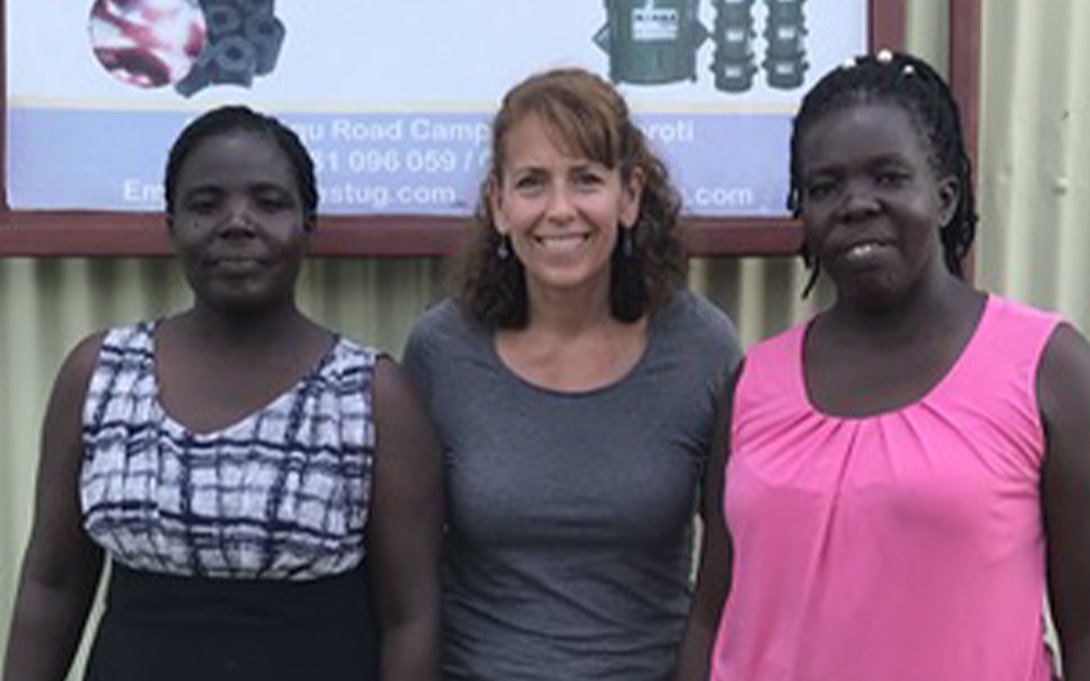
We hope our programs will help these businesses survive and ensure access to affordable energy for low-income households. In the long run, this may be beneficial to these businesses as they pivot to new marketing strategies.”
Because it is easy to transport and produce, wood charcoal is an important cooking fuel in developing countries, particularly in urban areas. Unfortunately, traditional wood charcoal, is often unsustainably produced and consumed, putting severe pressure on forest cover. Facing COVID-19 restrictions, Sylvia Herzog (MPP/MBA ‘88), director of The Charcoal Project (TCP), is working with small businesses to replace traditional wood charcoal with charcoal briquettes made from renewable biomass or waste streams. These briquettes are an eco-friendly alternative fuel for households, schools and businesses across East Africa.
“The COVID- 19 crisis has put tremendous pressure on small businesses as it has elsewhere in the world,” said Herzog. Small business suppliers now face two major challenges as a result of COVID-19: feedstock supply has decreased due to movement restrictions and large institutional demand has significantly declined because of the collapse of tourism and closing of schools. With charcoal briquette producers under mandated curfews and travel restrictions, they face several hurdles to ensure their product remains affordable and accessible for consumers.
As COVID-19 restrictions were taking shape in East Africa, Herzog worked with local producers to ensure charcoal entrepreneurs were categorized as essential workers. This would allow them to continue to produce and provide fuel for low-income households. However, other supply chain and economic changes still pose great challenges. “Despite being declared an essential product, movement restrictions and fear of contracting the virus has hampered production and sales to households. At the same time, poor households are seeing increased prices for wood and charcoal because of supply restrictions. So households are seeing a drop in income and increase in household energy prices, making it difficult for them to feed their families,” said Herzog.
Through Herzog’s leadership, TCP has been dedicated to finding pragmatic solutions to confront these challenges in a timely manner. These include:
- Mentoring to help businesses cope with restrictions and identify new distribution partnerships;
- Webinar training to readjust marketing efforts and reach more households;
- Offering pro bono services through a digital marketing research company to help them pivot their marketing strategy; and
- Raising emergency funding to provide micro-grants to producers to help them pay wages, buy PPE, and donate fuel to communities in need.
“We hope our programs will help these businesses survive and ensure access to affordable energy for low-income households. In the long run, this may be beneficial to these businesses as they pivot to new marketing strategies,” said Herzog
Watch the video featuring TCP’s Essential Producers
Sylvia Herzog joined The Charcoal Project in 2010 because of a strong interest in finding renewable energy solutions to combat global warming and deforestation. She has managed TCP’s on-the-ground projects and the development of new ventures, like the Harvest Fuel Initiative. While at The Charcoal Project, Sylvia has used her deep experience helping entrepreneurs to provide assistance to sustainable biomass energy producers.
In addition to The Charcoal Project, Sylvia works as Program Director at the Women’s Enterprise Development Center, where she works closely with entrepreneurs at all stages to help them with their businesses. Sylvia has worked in various positions in banking and finance, including private placements and relationship management. She has an MBA, a Master of Public Policy and a BA in Economics, all from the University of Michigan. Sylvia is an Alumni Board Member at the University of Michigan Ford School of Public Policy and she currently resides with her family in Westchester County, New York